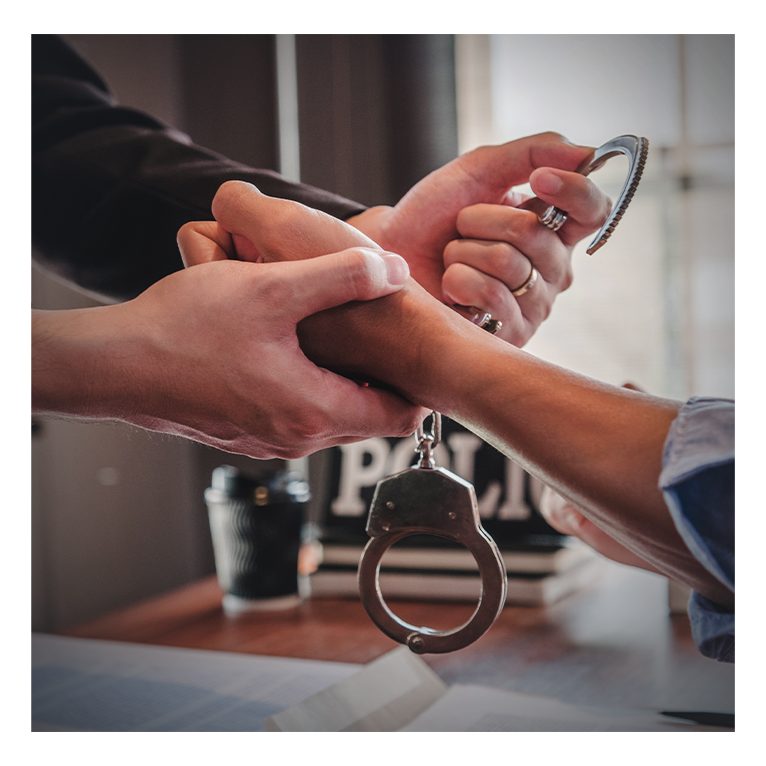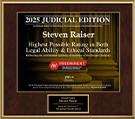
New York Weapons Trafficking Attorneys
Get Competent Legal Help for Your Firearms Smuggling or Trafficking Charge
The state of New York is well known for having some of the strictest gun laws in the nation. This includes not just owning a firearm, but also selling and transporting weapons. If you are caught engaging in any firearms trafficking activities, the penalties can be serious.
The state's gun control laws not only prohibit the sale, transfer, and transport of guns, but it also applies to ammunition and other gun-related items such as silencers and clips. It is illegal to sell or deliver these items without first obtaining a license from the appropriate authorities. Additionally, anyone who transports guns into the state must have written permission from a law enforcement officer or other government official before doing so.
Penalties for violations related to weapons trafficking are harsh; they can include long prison sentences as well as hefty fines imposed by courts. Furthermore, individuals who are found guilty of such violations may lose their right to own a firearm in the future.
If you have been contacted by law enforcement about such an offense, do not waive your legal rights or answer any questions until you have obtained the services of our team at Raiser & Kenniff. Our experienced criminal defense attorneys will fight aggressively against charges of weapons trafficking in New York and strive for the most favorable outcome possible for your case.
So don’t wait; dial (888)-646-0025 today or contact us online to schedule a free consultation with one of our knowledgeable New York weapons trafficking lawyers.


Why We're the Right Choice
Attentive Service. Strategic Defense.
Raiser and Kenniff, P.C. is here to help you get the results you need with a team you can trust.
-
Personalized Legal StrategyWe don’t believe in one-size-fits-all solutions. Every case is handled with a custom legal approach tailored to your goals, your circumstances, and your future.
-
Risk-Free Consultation
We offer a risk-free evaluation of your case and are here to help you understand your legal options. We are available 24/7, day or night, to help you.
-
Top-Rated Team
Nationally recognized for results. Our attorneys have been ranked among the best in the U.S., Trusted for their strategy, skill, and relentless client advocacy
-
Former ProsecutorsOur founding partners are both former New York prosecutors who bring unique experience and insights to every case, especially when it comes to going to trial.

Registering an Assault Weapon in NY
The Superintendent retains all jurisdiction over these matters and sets the conditions for registration of weapons and the issuance of firearms licenses or the amendment of existing licenses obtained prior to January 14, 2014. This will require the submission of one’s name, date of birth, current address, social security number and description of any and all weapons owned by individual that is being registered. The license holder must also have their certifications checked once every five years by the Division of State Police or face revocation of their licensed status within the state. This process is to determine whether or not the individual applying for registration has the legal permissions to do so.
What to do Next?
If you’re thinking of purchasing a weapon or registering one but are unsure of your legal status to own it in the state or your ability to have it registered, consider consulting legal counsel from Raiser & Kenniff. This legal team is well versed in the permissions granted by New York law and can guarantee one has full access to their rights.


a Reputation For excellence
Read Our Client Testimonials
-
"They were always available quickly, to address my concerns. Having dealt with some law firms before, I really appreciated this."
Steven Raiser's law firm handled my case with excellence throughout the process. I had a SBA EIDL loan that got transferred to the Department of Treasury unexpectedly, and had a 30% penalty added to the amount due, and due very quickly, which was very stressful. After talking with Steven Raiser, and working with Harry Gill, who was absolutely brilliant in working with me and preparing the case, they were able to recall the case to the SBA. They were always available quickly, to address my concerns. Having dealt with some law firms before, I really appreciated this.
Very grateful and appreciative to Steven Raiser and Harry Gill. Great work- Harry -
They treated me wonderfully and helped me out of a bind. I feel that this firm really cares.- Michelle A.
Who Can Register an Assault Weapon in NY?
There are legal restrictions may apply to individuals who’ve been convicted of serious offenses that fall under the New York Penal Code that prevent them from owning any firearms regardless of whether they meet the requirements for assault weapon status. Other restrictions may also apply to individuals with mental illnesses who are considered a credible threat to themselves and others as defined by the New York Mental Hygiene Law.
What Happens When You Don’t Register Your Assault Weapon
Failing to register an assault weapon already in one’s possession prior to January 15, 2014, means the individual has knowingly placed themselves in a position to be guilty of a Class A misdemeanor. This is in a case where it can be legally proven that the individual knowingly neglected registration. In the instance an individual unknowingly failed to register an assault weapon they are given a warning with a time frame in which they must formally register.
Call us at (888)-646-0025 or contact us online. We are available around the clock, and we are standing by to help you.







